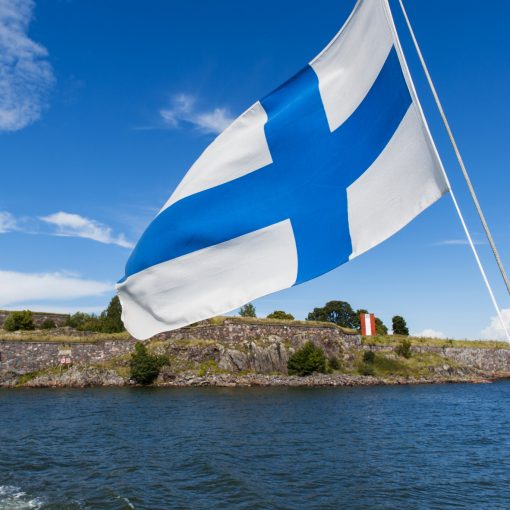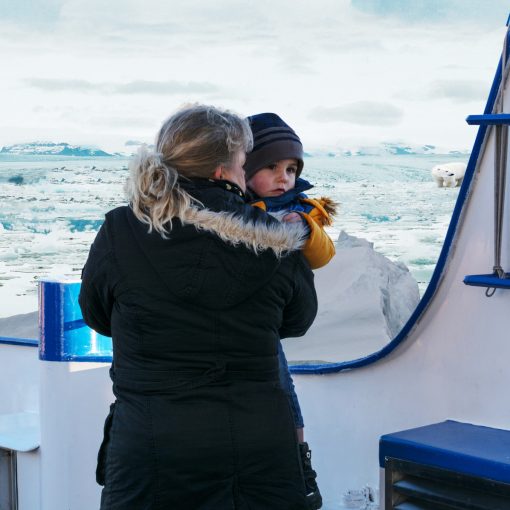The national strategies of the countries
The Nordic Welfare Centre, together with the members of the Council of Nordic Cooperation on Disability, monitors what is happening in the national disability policy landscapes.

Denmark
Ministry of Social Affairs, Housing and Senior Citizens is the coordinating ministry for disability policy. The development of the area is a shared responsibility for all ministerial areas, each sector being responsible for integrating disability policy aspects into its policies.
Together with the CRPD framework, four principles frame Danish disability policy: the Equal Treatment Principle, the Compensation Principle, the Sector Responsibility Principle and the Solidarity Principle.
Danske Handicaporganisationer is the country’s umbrella organisation for disability organisations.
Det Centrale Handicapråd is the disability organisations’ national body for consultation with the government.
The Danish Institute for Human Rights is a self-owned state institution with a mandate to promote and protect human rights and equal treatment in Denmark and abroad. In the disabled area, the Institute aims to promote and monitor the implementation of CRPD.
The institute has identified 10 focus areas that shall improve the legal rights of people with disabilities ten indicators for the implementation and monitoring of CRPD.
The National Board of Social Services is responsible for knowledge and guidance for government agencies, municipalities and other providers of social support and service for citizens with disabilities.
Denmark’s 98 municipalities are responsible for helping and supporting individual citizens on the basis of individual assessments of needs. The municipal executive board defines the municipality’s service level and decides on the content and scope of assistance within the framework of the law.
The National Board of Appeal is an independent board under the Ministry of Social Affairs and the Interior, which acts as a complaint authority and is also responsible for coordinating the municipalities’ practice in the social field.

Finland
The Ministry of Social Affairs and Health coordinates disability policy in Finland. However, all administrative areas are responsible for execution.
The principles of disability policy mean that persons with disabilities have the right to: equal treatment, participation and non-discrimination, as well as necessary services and support measures. The policy for the area is based on fundamental freedoms and rights, as well as human rights. Provisions on non-discrimination against persons with disabilities have been incorporated into the Finnish Constitution.
Finlands actionplan for CRPD 2020-2023: Right to social inclusion and equality : National Action Plan on the UN Convention on the Rights of Persons with Disabilities (2020–2023).
Vammaisfoorumi ry (Handikappforum rt) is an umbrella organisation for disability organisations.
The Delegation for the Rights of Persons with Disabilities, VANE, is the government’s national mechanism for consultation and coordination on the implementation of CRPD and disability policy. VANE has been responsible for drawing up the action programme. VANE has representatives of disability organisations, labour market organisations and those ministries that are important with regard to the rights of persons with disabilities.
The Human Rights Centre is an autonomous and independent expert body, whose task is to promote fundamental and human rights and to increase collaboration and the sharing of information between different actors. The Human Rights Centre monitors the implementation of CRPD.
The Discrimination Ombudsman monitors rights based on disability.
The National Institute for Health and Welfare (THL) promotes opportunities for people with disabilities to manage on their own through its research and development work. THL disseminates information about services, forms of assistance and benefits, by such means as its handbook for the area.
More information on services and forms of assistance in Finland.
The Social Insurance Institution (KELA) is responsible for decisions on and the payment of benefits.
Responsibility for providing services for persons with disabilities was transferred from the municipalities and joint municipal authorities to the wellbeing services counties on 1 January 2023. Finland has 22 wellbeing services counties.
The Act on Special Care will be amended to ensure that services for persons with disabilities continue in the wellbeing services counties.

The Faroe Islands
The Ministry of Social Affairs and Culture and the Almannaverkið coordinate disability policy and has an important role in the developments in this field, including cross-sectoral cooperation. The Ministry is working to develop a new disability action plan.
MEGD is an umbrella organisation for disability organisations in the Faroe Islands.
Interest groups in the Faroe Islands are working to establish a spokesperson for people with disabilities, reflecting the model from Greenland.
The Faroe Islands have 29 municipalities.

Greenland
The National Board of Health and Welfare coordinates disability policy and services in Greenland.
On 12 June 2019, the Government of Greenland adopted an act on support for persons with disabilities, Inatsisartutlov No. 13. The act is designed to reflect as far as possible the UN Convention on the Rights of Persons with Disabilities.
Greenland does not yet have a strategy or action plan for disability policy. The area of disability is, however, mentioned separately in the Coalition Agreement 2014–2018.
Tilioq, Handicaptalsmanden, is a driving force in the field and follows up the implementation of the UN Convention. Handicaptalsmanden Tilioq has a website that explains which rights of the Convention on the Rights of Persons with Disabilities apply to Greenland.
NIIK is the umbrella organisation of the disabilityorganisations in Greenland.
The Human Rights Council of Greenland and the Danish Institute for Human Rights – Denmark’s National Human Rights institution, have written a status report for the disabilities area (2019). Tilioq maintains an overview of legislation in the area of disability.
Pissassarfik is a nationwide disability centre located in Sisimiut.

Iceland
The Ministry of Social Affairs and Labour, Félags- og vinnumarkaðsráðuneytið, coordinates disability policy in Iceland.
Iceland’s national action plan for disability policy is valid for 2017–2021. The action plan has seven goals, with four to seven measures under each goal, 37 measures in total.
There are two umbrella organisations for the disability movement in Iceland: The ÖBI, which organises 41 organisations and Throskahjalp, an association of 20 groups with a total of nearly 6,000 members.
Throskahjalp has published a new translation of human rights for the disabled in Iceland (2020), Samningur SÞ um réttindi fatlaðs fólks (2020).
Iceland has 79 municipalities that cooperate through Samband, the association of municipalities.

Norway
The Royal Norwegian Ministry of Culture and Equality is responsible for national equality and anti-discrimination legislation which, for example, prohibits discrimination based on disability. The Ministry also has overarching responsibility for coordinating the government’s policy for people who are functionally impaired.
Norway has political strategies and action plans in several disability-related areas. The overarching action plans are Bærekraft og lika muligheter – et universallt utformet Norge (2021-2025) (Sustainability and equal opportunities – a universally structured Norway (2021-2025) ) and Et samfunn for alle – regjeringenens strategi for likestilling av männesker med funksjonsnedsettelse for perioden 2020-2030 (A society for all – the government’s strategy for equality for people with disabilities for the period 2020-2030). The UN Convention on the Rights of Persons with Disabilities (CRPD) forms the basis of government policy.
Norway has several umbrella organisations for disability organisations – The Norwegian Federation of Organisations of Disabled People (FFO), The Norwegian Association of Disabled and Norwegian Forum of Disabled Peoples’ Organizations (SAFO). The Norwegian Association of Youth with Disabilities is an umbrella organisation for young people with disabilities.
The Norwegian Directorate for Children, Youth and Family Affairs (Bufdir) is the ministry’s specialist directorate for policy concerning people with disabilities. The Ministry of Culture and Equality is responsible for coordinating policy in this area, and Bufdir’s mandate is to coordinate the implementation of measures on the ground.
The Gender Equality and Anti-Discrimination Ombud (LDO) monitors the rights of persons with disabilities.
NAV manages schemes such as unemployment benefit, work assessment allowance, sickness benefit, pensions, child benefit, cash support and practical aids.
Norway has 356 municipalities that cooperate through the Norwegian Association of Local and Regional Authorities (KS). KS coordinates a network on universal design. The network generates collections showcasing good examples.

Sweden
The Ministry of Health and Social Affairs coordinates disability policy. Several other ministries and policy areas are covered by the policy, and there is an interdepartmental group with representatives from different ministries who, through dialogue, share experiences and discuss topical issues.
Swedish disability policy is based on CRPD and deals with the rights and interests of people with disabilities in society. The Swedish Parliament has decided on the direction and objectives of disability policy. The goal is to achieve equality in living conditions and full participation in society for people with disabilities in a society based on diversity, taking CRPD as a starting point. This aim is that this goal will contribute to greater gender equality and to the children’s rights perspective being considered. In order to achieve the national goal, the implementation of disability policy is focusing on four areas: the principle of universality, existing shortcomings in accessibility, individual support and solutions for individual independence, and preventing and combating discrimination.
The Swedish government has adopted a strategy for systematic follow-up on disability policy during 2021–2031. The strategy mandates 30 government agencies to follow up specifically on the national objective for disability policy.
The Swedish Agency for Participation (MFD) is a knowledge-based agency working in the field of disability. MFD has a special responsibility for the implementation of and follow-up on disability policy. MFD follows up on, among others, public actors and living conditions. MFD’s task is to work to ensure that disability policy has an impact throughout society.
Funktionsrätt Sverige is a umbrella organisation for disability organisations in Sweden. The Swedish Disability Rights Federation coordinates civil society’s reporting of CRPD through the national report Respekt för rättigheter (Respect for Rights), which is updated every year. Several youth organisations have organised themselves in Nätverket för Unga för Tillgänglighet (NUFT).
Funktionshindersdelegationen is the disability organisations’ national consultation body with the government. Funktionshindersdelegationen consists of representatives from 14 federations and is headed by the minister responsible. The delegation meets four times a year for regular meetings.
The Discrimination Ombudsman monitors the rights of persons with disabilities.
The Swedish National Board of Health and Welfare works to ensure that government agencies and organisations in the field health and social care are involved in achieving the disability policy goals. The agency publishes, among other things, open comparisons about support and service, and collates guidance and other information about aids.
The Swedish Social Insurance Agency makes decisions on and pays out a large proportion of social security benefits.
The Swedish Public Employment Service offers special support for jobseekers with disabilities and information for employers who employ people with disabilities.
Sweden has 290 municipalities. The work of the Swedish Association of Local Authorities and Regions (SKR) on disability issues involves supporting municipalities and county councils/regions in their continuous development work. To clarify SKL’s focus on the field of disability, a position paper for disability and participation has been produced. The position paper presents starting points, guiding principles, issues common to several sectors and sectoral issues. SKL also publishes open comparisons of several of the municipalities’ initiatives for participation.
The Swedish Institute for Human Rights was established in 2022. The institute aims to ensure that Sweden protects the rights of persons with disabilities, and is responsible for civil society’s alternative reporting to the UN Committee for the CRPD.

Åland
The Social and Environmental Department of the provincial government is responsible for the coordination of disability policy.
In 2022, Åland’s provincial government adopted “An accessible Åland – action programme for the Åland Provincial Government’s disability policy, 2022–2025”. The programme covers 29 content areas and a total of 58 initiatives relating to specific articles of the UN Convention.
The Åland Disability Rights Federation, Funktionsrätt Åland, is a collaborative association for disability and patient associations in Åland. The Åland Disability Rights Federation is responsible for Åland’s alternative reporting to the UN.
The Council for Persons with Disabilities in Åland is the government’s consultation body with disability organisations and the coordinating mechanism for implementing the UN Convention. The Province of Åland has a permanent expert member in the Finnish national Delegation for the Rights of Persons with Disabilities, VANE.
The Discrimination Ombudsman, through the authority of the Åland Ombudsman, is the supervisory authority.
The 15 municipalities in the province must promote and follow the living conditions of persons with disabilities and, through their activities, endeavour to prevent the occurrence of maladministration and to remove any inconveniences that restrict the opportunities for persons with disabilities for activities and involvement.

